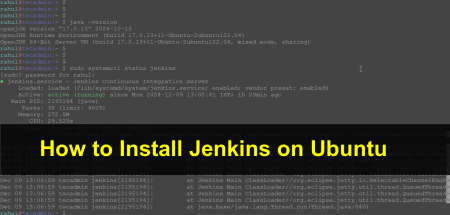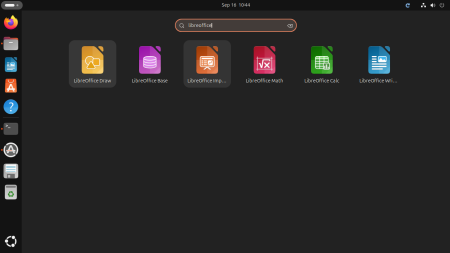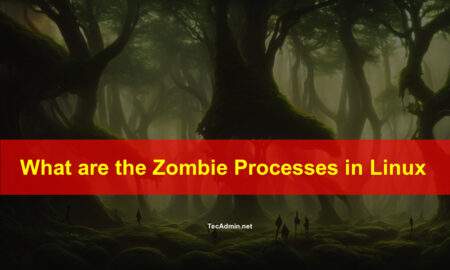- Current stable – Install Ruby Latest Stable Release
- Previous stable – Install Ruby Previous Stable Release
Ruby programming language is becoming is more popular these days. Ruby language was created by Yukihiro “Matz” Matsumoto and first published in 1995. This article will help you to install Ruby language in CentOS, RedHat system using RVM. For this article I am using CentOS 6.5. RVM provides easy set of commands to install single or multiple versions of Ruby on single server.
Step 1: Upgrade Packages
It is the best practice to keep your system up to date with latest packages. Before running below command make sure that update will not affect to your running apps ( if any )on server else skip it
# yumupdate
Step 2: Installing Recommended Packages
There are few developemnt libraries required to run Ruby on Linux. Use following command to install recommended packages on your server using yum.
# yuminstall gcc-c++ patch readline readline-devel zlib zlib-devel # yuminstall libyaml-devel libffi-devel openssl-devel make # yuminstall bzip2 autoconf automake libtool bison iconv-devel
Step 3: Install RVM ( Ruby Version Manager )
Install latest stable version of RVM on your system using following command. This command will automatically download all required files and install on your system.
# curl -Lget.rvm.io | bash -sstable
[Sample Output]
% Total % Received % Xferd Average Speed Time Time Time Current
Dload Upload Total Spent Left Speed
100 20511 100 20511 0 0 1120 0 0:00:18 0:00:18 --:--:-- 19722
Downloading https://github.com/wayneeseguin/rvm/archive/stable.tar.gz
Creating group 'rvm'
Installing RVM to /usr/local/rvm/
Installation of RVM in /usr/local/rvm/ is almost complete:
* First you need to add all users that will be using rvm to 'rvm' group,
and logout - login again, anyone using rvm will be operating with `umask u=rwx,g=rwx,o=rx`.
* To start using RVM you need to run `source /etc/profile.d/rvm.sh`
in all your open shell windows, in rare cases you need to reopen all shell windows.
# Administrator,
#
# Thank you for using RVM!
# We sincerely hope that RVM helps to make your life easier and more enjoyable!!!
#
# ~Wayne, Michal & team.
In case of problems: http://rvm.io/help and https://twitter.com/rvm_io
Step 4: Setup RVM Environment
After installing RVM first we need to setup rvm environment using below command.
# source/etc/profile.d/rvm.sh
Step 5: Install Required Ruby Version
RVM provides option to manage multiple ruby version on single system. Use following command to install required version of Ruby.
# rvm install1.9.3
[Sample Output]
Searching for binary rubies, this might take some time.
No binary rubies available for: centos/6/i386/ruby-1.9.3-p545.
Continuing with compilation. Please read 'rvm help mount' to get more information on binary rubies.
Checking requirements for centos.
Installing requirements for centos.
Updating system......
Installing required packages: libyaml-devel......
Requirements installation successful.
Installing Ruby from source to: /usr/local/rvm/rubies/ruby-1.9.3-p545, this may take a while depending on your cpu(s)...
ruby-1.9.3-p545 - #downloading ruby-1.9.3-p545, this may take a while depending on your connection...
% Total % Received % Xferd Average Speed Time Time Time Current
Dload Upload Total Spent Left Speed
100 9802k 100 9802k 0 0 217k 0 0:00:45 0:00:45 --:--:-- 393k
ruby-1.9.3-p545 - #extracting ruby-1.9.3-p545 to /usr/local/rvm/src/ruby-1.9.3-p545.
ruby-1.9.3-p545 - #applying patch /usr/local/rvm/patches/ruby/GH-488.patch.
ruby-1.9.3-p545 - #applying patch /usr/local/rvm/patches/ruby/ssl_no_ec2m.patch.
ruby-1.9.3-p545 - #configuring..............................................
ruby-1.9.3-p545 - #post-configuration.
ruby-1.9.3-p545 - #compiling...................................................................
ruby-1.9.3-p545 - #installing........................
ruby-1.9.3-p545 - #making binaries executable.
ruby-1.9.3-p545 - #downloading rubygems-2.2.2
% Total % Received % Xferd Average Speed Time Time Time Current
Dload Upload Total Spent Left Speed
100 404k 100 404k 0 0 25393 0 0:00:16 0:00:16 --:--:-- 335k
No checksum for downloaded archive, recording checksum in user configuration.
ruby-1.9.3-p545 - #extracting rubygems-2.2.2.
ruby-1.9.3-p545 - #removing old rubygems.
ruby-1.9.3-p545 - #installing rubygems-2.2.2...............
ruby-1.9.3-p545 - #gemset created /usr/local/rvm/gems/ruby-1.9.3-p545@global
ruby-1.9.3-p545 - #importing gemset /usr/local/rvm/gemsets/global.gems.....
ruby-1.9.3-p545 - #generating global wrappers.
ruby-1.9.3-p545 - #gemset created /usr/local/rvm/gems/ruby-1.9.3-p545
ruby-1.9.3-p545 - #importing gemsetfile /usr/local/rvm/gemsets/default.gems evaluated to empty gem list
ruby-1.9.3-p545 - #generating default wrappers.
ruby-1.9.3-p545 - #adjusting #shebangs for (gem irb erb ri rdoc testrb rake).
Install of ruby-1.9.3-p545 - #complete
WARNING: Please be aware that you just installed a ruby that is no longer maintained (2014-02-23), for a list of maintained rubies visit:
http://bugs.ruby-lang.org/projects/ruby/wiki/ReleaseEngineering
Please consider upgrading to ruby-2.1.1 which will have all of the latest security patches.
Ruby was built without documentation, to build it run: rvm docs generate-ri
Step 6: Install Another Version ( if Required )
If you want using multiple versions of ruby, you can install it also using rvm else skip this step.
# rvm install1.8.6
Step 7: Setup Default Ruby Version
Use rvm command to setup default ruby version to be used by applications.
#rvm use 1.9.3 --default Using /usr/local/rvm/gems/ruby-1.9.3-p545
Step 8: Check Current Ruby Version
Using following command you can check the current ruby version is used.
# ruby --version ruby 1.9.3p545 (2014-02-24 revision 45159) [i686-linux]
I hope above steps will help you for installing multiple Ruby version using RVM.




20 Comments
thanks for the post, it really saved my time, thanks!
Thanks for this!
Really makes things easy!
hi rahul i am beginer in ruby in rail i am using ubuntu
in my system when i am using check ersion of ruby using
—> sudo ruby -v
so it return “ruby 1.8.7 (2011-06-30 patchlevel 352) [x86_64-linux]”
without sudo i write —> ruby -v
so it return “ruby 2.0.0p598 (2014-11-13 revision 48408) [x86_64-linux]”
when i am set default version of ruby in rvm using –> rvm 2.0.0 use –default
so it display ruby version in ruby 2.0.0p598
when i install rails urin gem without sudo —> gem install rails
so it return
ERROR: While executing gem … (Errno::EACCES)
Permission denied – /home/keyur/.gem/specs
while i am using sudo —>sudo gem install rails
it return
ERROR: Error installing rails:
activesupport requires Ruby version >= 1.9.3.
i try also chnage version of ruby usinfg —> rvm 1.9.3 use –default
after that when i check version without sudo like —>ruby -v
so it return
ruby 1.9.3p551 (2014-11-13 revision 48407) [x86_64-linux]
but still it return following error
ERROR: Error installing rails:
activesupport requires Ruby version >= 1.9.3.
pls help how i can solve this error,
Thanks in advance!!!
Worked as a charm. Many thanks!
Nice Jobs man! Regards
Thanks for this nice article, I noted that all the commands you give are performed as root user (#), in my case all worked perfectly installing 1.9.3 into a Oracle Linux 6.5 Virtual Box Machine, but the last command (ruby –version) given from a oracle user shell (not by root) gave me 1.8.7, because /usr/bin/ruby was still the previous version.
To enhance your answer I would add the following final steps:
– remove previous ruby versions (#yum remove ruby); after this ruby — version from a non root terminal should give error because ruby has been removed
– all your steps you described
– find the path of the new (1.9.3) ruby version: /usr/local/rvm/gems/ruby-1.9.3-p547/wrappers/ruby
– from root prompt: #ln -s /usr/local/rvm/gems/ruby-1.9.3-p547/wrappers/ruby /usr/bin/ruby
– after this open a new oracle terminal and $ruby –version should give 1.9.3
Again thank you for your work
Alberto
Good article!
thank you
I hope the below config is correct.
~~~~~~~~~~~~~~~~~~~~~~~~~~~
[root@kodiak-SA2 rearview-1.2.0]# gem environment
RubyGems Environment:
– RUBYGEMS VERSION: 2.2.2
– RUBY VERSION: 1.9.3 (2014-02-24 patchlevel 545) [x86_64-linux]
– INSTALLATION DIRECTORY: /usr/local/rvm/gems/ruby-1.9.3-p545
– RUBY EXECUTABLE: /usr/local/rvm/rubies/ruby-1.9.3-p545/bin/ruby
– EXECUTABLE DIRECTORY: /usr/local/rvm/gems/ruby-1.9.3-p545/bin
– SPEC CACHE DIRECTORY: /root/.gem/specs
– RUBYGEMS PLATFORMS:
– ruby
– x86_64-linux
– GEM PATHS:
– /usr/local/rvm/gems/ruby-1.9.3-p545
– /usr/local/rvm/gems/ruby-1.9.3-p545@global
– GEM CONFIGURATION:
– :update_sources => true
– :verbose => true
– :backtrace => false
– :bulk_threshold => 1000
– REMOTE SOURCES:
– https://rubygems.org/
– SHELL PATH:
– /usr/local/rvm/gems/ruby-1.9.3-p545/bin
– /usr/local/rvm/gems/ruby-1.9.3-p545@global/bin
– /usr/local/rvm/rubies/ruby-1.9.3-p545/bin
– /usr/local/rvm/bin
– /root/jruby-1.7.12/bin
– /usr/lib64/qt-3.3/bin
– /usr/local/sbin
– /usr/local/bin
– /sbin
– /bin
– /usr/sbin
– /usr/bin
– /root/bin
– /usr/lib/jvm/java-1.6.0-openjdk-1.6.0.0.x86_64/bin
~~~~~~~~~~~~~~~~~~~~~~~~~~~~~
thanks a ton for step by step installation
I have problem with installation , when I run yum install gcc-c++ patch readline readline-devel zlib zlib-devel command, I got errors as
Trying other mirror.
: [Errno 14] PYCURL ERROR 22 – “The requested URL returned error: 404”
Trying other mirror.
My repos infos are as below :
ls -l /etc/yum.repos.d/
total 28
-rw-r–r–. 1 root root 1926 Jun 26 2012 CentOS-Base.repo
-rw-r–r–. 1 root root 637 Jun 26 2012 CentOS-Debuginfo.repo
-rw-r–r–. 1 root root 626 Jun 26 2012 CentOS-Media.repo
-rw-r–r–. 1 root root 2593 Jun 26 2012 CentOS-Vault.repo
-rw-r–r– 1 root root 957 Apr 18 16:23 epel.repo
-rw-r–r– 1 root root 1056 Nov 5 2012 epel-testing.repo
-rw-r–r– 1 root root 332 Jul 20 2011 rbel6.repo
My centos version is as
#cat /etc/issue
CentOS release 6.3 (Final)
Kernel r on an m
Please help me.
Hi Shyam,
Add REMI and CentAlt yum repositories in your system http://tecadmin.net/top-5-yum-repositories-for-centos-rhel-systems/
clean all yum cache before installing packages.
yum clean all
Today it worked itself. I didn’t add any yum repository. I had added EPEL repos already but was not working.
Thanks for suggestion.
Hi,
Thanks for the low down.
I have followed your steps and enabled 1.9.3 with RVM but I can’t see it operating systemwide. When I log in to the server (as a regular user) I still see ruby 1.8.7 (2011-06-30 patchlevel 352) [x86_64-linux]
Can you make any suggestions.
Thanks,
Ian
Hi Ian,
even i am facing the same issue, can you please help me if you have solved the issue.
Hi Roopashree,
I assume you must have executed following command to make 1.9.3 as default .
# rvm use 1.9.3 –default
Can you check version immediate after running above command
# ruby –version
Awesome post !… thanks so much
Nice article , thanks , all the required info in one place. Btw have you tried to install gem “capybara-webkit”, does it install without any objection ?
Thanks again for the article.
Hi Shahbaz,
In order to install capybara-webkit, You need to set QMAKE environment variable.
Install qt47-webkit-devel rpm and set QMAKE using below command.
export QMAKE=/usr/bin/qmake-qt47
Hope it will help you… If you still face issue, let me know what OS and version are you using…
Hi,
Ah!!! Finally solved it, cause I was installing on CentOS 5.8, and after installing qt47 when its time to install caypybara-webkit, it will look for qt47 on usr/lib/bin , but qt47 resides on usr/lib64/bin. If ‘export PATH’ doesn’t work on 5.8 then just create a symlink to lib64.
Thanks again for all the help.
Cheers.